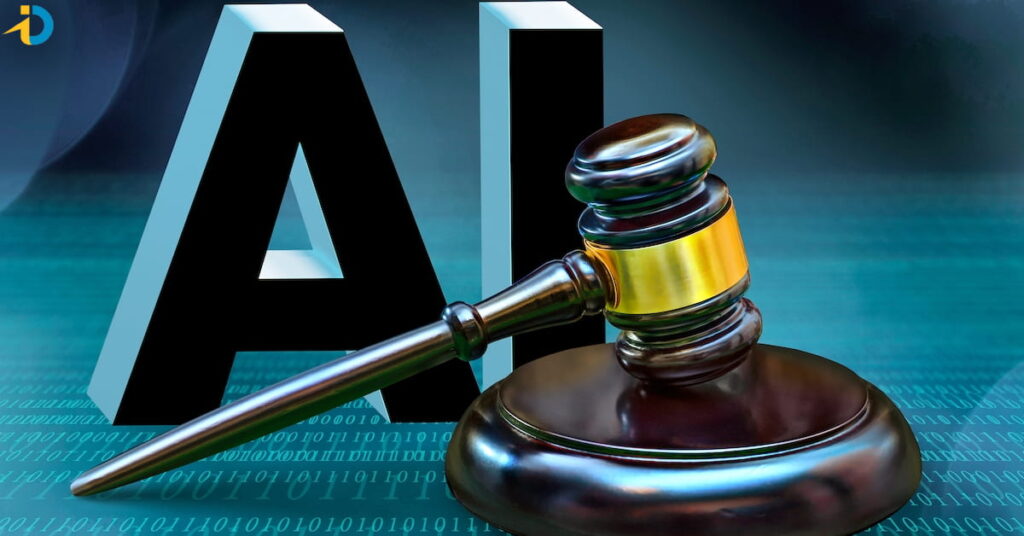Artificial intelligence (AI) has rapidly evolved, revolutionizing industries from healthcare to finance, and even the legal field itself.
As AI becomes more integrated into everyday business and government operations, it raises important legal questions and concerns that must be addressed to ensure its responsible use.
The legal implications of AI are vast and complex, impacting intellectual property, privacy, liability, discrimination, and governance.
This article explores the key legal issues associated with the rise of AI and the challenges they present for lawmakers, businesses, and society.
Key Takeaways:
- The legal implications of AI are vast and multifaceted, impacting intellectual property, privacy, liability, and discrimination.
- Current laws often struggle to keep up with the rapid development of AI, creating gaps and uncertainties in how AI should be regulated and governed.
- Governments and organizations are increasingly exploring frameworks to ensure AI is developed and deployed responsibly and ethically.
1. Intellectual Property and AI
One of the first legal challenges that arise with AI technology is its relationship with intellectual property (IP). As AI systems become capable of creating original works, such as music, art, and even patents, the question arises: who owns the intellectual property rights to AI-generated creations?
In traditional IP law, creators must be human to claim ownership of works. However, as AI can generate creative output without human involvement, current laws struggle to assign ownership.

The U.S. Copyright Office, for instance, does not allow copyright for works created solely by AI, but it is unclear whether that stance will evolve as AI systems become more autonomous.
For patent law, the issue is similarly complex. Who is credited as the inventor when an AI system generates a new invention?
The answer is not clear-cut, and courts and lawmakers are grappling with how to apply traditional laws to AI-driven inventions. This gap in the law could stifle innovation or lead to disputes over ownership and rights.
2. Privacy Concerns and Data Protection
AI systems rely on vast amounts of data, much of it personal, to train models and improve their performance. This data can include sensitive information such as health records, financial details, or biometric data.
The collection, storage, and use of such data raise significant privacy and data protection concerns.
Under existing privacy laws, like the European Union’s General Data Protection Regulation (GDPR) and California’s Consumer Privacy Act (CCPA), AI companies must be transparent about how they collect and use data.
These laws grant individuals certain rights, such as the right to access their data, request its deletion, and challenge automated decisions.

Privacy Concerns and Data Protection
However, AI technologies often operate as “black boxes,” making it difficult for individuals to understand how decisions are made or how their data is being used.
This lack of transparency could violate privacy laws and lead to legal challenges from consumers or regulators. Furthermore, there is the issue of AI models inadvertently perpetuating bias, as they may learn from historical data that reflects discriminatory practices.
3. Liability and Accountability
As AI systems are increasingly used in high-stakes environments, such as self-driving cars, healthcare, and criminal justice, questions about liability become paramount.
If an AI system makes a mistake that results in harm—whether through an accident, misdiagnosis, or wrongful legal decision—who should be held accountable?
In traditional legal systems, liability typically falls on individuals or entities responsible for the design, deployment, or maintenance of a product or service.
However, AI systems often operate independently of human intervention, making it difficult to assign liability. This issue becomes even more complicated in situations where AI systems learn from data and evolve, making their actions unpredictable.
Some legal experts argue that manufacturers, developers, and even users of AI should bear responsibility for the actions of autonomous systems. Others suggest that new laws, such as AI-specific liability frameworks, may be necessary to address these emerging concerns.
4. Discrimination and Bias
AI systems have the potential to perpetuate and even amplify bias, especially if they are trained on biased datasets. For example, if an AI algorithm is trained on data that reflects historical biases against certain groups—such as women or racial minorities—it may produce discriminatory outcomes when used in hiring, lending, or law enforcement.
Legal implications arise when AI systems are used in decision-making processes that affect people’s rights, such as in hiring or criminal justice.

Under anti-discrimination laws like the Civil Rights Act of 1964 in the U.S. or the Equality Act in the U.K., AI systems that discriminate based on race, gender, or other protected characteristics could lead to lawsuits or regulatory penalties.
To address this, some governments and organizations are exploring frameworks for auditing AI systems for bias and ensuring that AI-driven decisions are fair, transparent, and non-discriminatory.
5. AI Governance and Regulation
As AI technology continues to evolve, governments are increasingly concerned with creating frameworks to regulate its development and use. At present, there is no universal regulation governing AI across borders.
In some regions, like the European Union, regulators are ahead of the curve with the proposed Artificial Intelligence Act, which aims to create a comprehensive legal framework for AI, addressing issues such as transparency, accountability, and safety.
However, the global nature of AI development presents a challenge for regulatory consistency. Different countries have varying approaches to AI governance, and without international cooperation, there is a risk that AI companies may exploit regulatory loopholes or operate in jurisdictions with weaker regulations.
6. Ethical Considerations in AI Deployment
Beyond legal concerns, ethical considerations are critical when it comes to AI deployment. Legal frameworks can only go so far in ensuring that AI systems are used ethically. Issues such as AI in warfare, surveillance, and autonomous decision-making require deeper ethical scrutiny.
For example, AI-powered surveillance tools used by governments or corporations can infringe on citizens’ rights to privacy, and AI in autonomous weapons raises questions about accountability and the value of human life. There is a growing need for ethical guidelines to complement legal frameworks, ensuring AI technologies are developed and deployed responsibly.
7. Future Legal Developments
As AI technology advances, the law will need to evolve to keep pace with these changes. Governments, legal professionals, and AI experts must work together to develop legislation that addresses the unique challenges AI presents. Some experts advocate for a “bill of rights” for AI, outlining the ethical and legal boundaries of AI technology, while others suggest creating entirely new legal categories or definitions for AI entities and their actions.
In the future, we may see the establishment of more specific laws that govern AI-related IP, liability, privacy, and anti-discrimination. Additionally, AI may even become subject to regulatory oversight similar to other high-risk technologies, such as pharmaceuticals or aviation.
FAQs
Who owns the intellectual property created by AI?
The ownership of intellectual property created by AI is still an open question, with current laws not clearly addressing AI-driven creations. Some argue that creators should be human, while others suggest new frameworks may be necessary.
How can AI impact privacy laws?
AI systems often rely on large amounts of personal data, raising concerns about privacy and data protection. Existing laws like GDPR and CCPA aim to regulate AI’s data collection and usage, but AI’s “black box” nature presents challenges.
Who is responsible if an AI system causes harm?
The question of liability for AI-induced harm is complex, with potential accountability falling on the developer, manufacturer, or user of the AI system. Some suggest new laws are needed to address this issue.
Final Thoughts
Artificial intelligence offers immense potential but also introduces significant legal challenges. As AI continues to shape our world, addressing its legal implications will be essential to ensuring its responsible and ethical use.
Lawmakers, regulators, and AI developers must collaborate to create frameworks that balance innovation with protection, fairness, and accountability. For more Software AI information check the nowstartai.
